Code of Conduct
GENERAL
This policy is applicable to all personnel who are employed by Coast Guard Mutual Assistance or who act in an official capacity for the organization as a member of the Board of Control or as an CGMA Representative/Assistant Representative at a base.
Coast Guard Mutual Assistance is the steward of donor’s money. As such, each individual involved with this organization is called upon to contribute his or her time, talents, and energy in a way that ensures the accomplishment of this mission and the safeguarding of funds entrusted to their care. Each individual has a fiduciary responsibility to the members of the U.S. Coast Guard that cannot be delegated, ignored, or abrogated.
Likewise, each individual has a moral and ethical responsibility to the Coast Guardsman and his/her family members. Personnel working with/for CGMA encounter Coast Guardsmen and their family members in the normal course of daily activities. These members and family members have a right to expect and to receive the highest quality service, respect, and fairness possible. It is incumbent upon each employee to insure the sanctity of the Coast Guardsmen that are entrusted to their care as they perform their CGMA duties.
Finally, each CGMA employee has a responsibility to treat fellow employees in the same manner which they would like to be treated.
PRINCIPLES
Treatment of Others:
Ensure that all persons which whom you have encounters, are given objectivity, fairness, and equal treatment, regardless of sex, race, ethnic origin, religion, disability, or military status.
Your goal should be to completely answer/resolve the situation with which you are presented. If the situation were not important to the other person, they would not have contacted you about it.
Conflict of Interest:
CGMA associates should not be involved in approving actions that affect themselves personally, affect a member of their family, or affect other personal considerations. This encompasses decisions regarding emergency assistance cases, contractual actions, receipt and dispersal of funds, decision-making, and personnel actions. Additionally, CGMA employees should not have outside employment which conflicts in any way with their CGMA employment.
Integrity and Fiduciary Responsibilities:
Proper safeguarding Coast Guardsman members’ money extends beyond the actual funds entrusted to your care; these responsibilities also include the equipment and supplies provided for your work. Diverting money, equipment, supplies, or services to your personal use or benefit is an illegal act.
Confidentiality and Privacy of Information:
CGMA associates have access to a significant amount of private and sensitive personal information. This information has been provided to enable CGMA to better accomplish its mission and to provide better service to Coast Guardsman and their families. As such, this information is the responsibility of CGMA to safeguard. Each employee will insure that they do not share, give, sell, or otherwise transfer personal information of any Coast Guardsman to anyone not directly connected with CGMA in the direct performance of the CGMA mission.
VIOLATIONS
Any person associated with Coast Guard Mutual Assistance, in any capacity, has the duty and responsibility to correct any violations of this ethics policy. If corrections of violations are beyond the capability of the person observing the misconduct, fraud, or abuse, that person has the responsibility to report the violation to CGMA Management. Any person reporting violations of this policy is protected by the CGMA Whistleblower Protection Policy.
Reports of misconduct, fraud, and abuse can be made directly to CGMA Management at CGMA Headquarters or be reported anonymously to the CGMA report hotline at cgma@mycgma.org or 703-875-0404.
